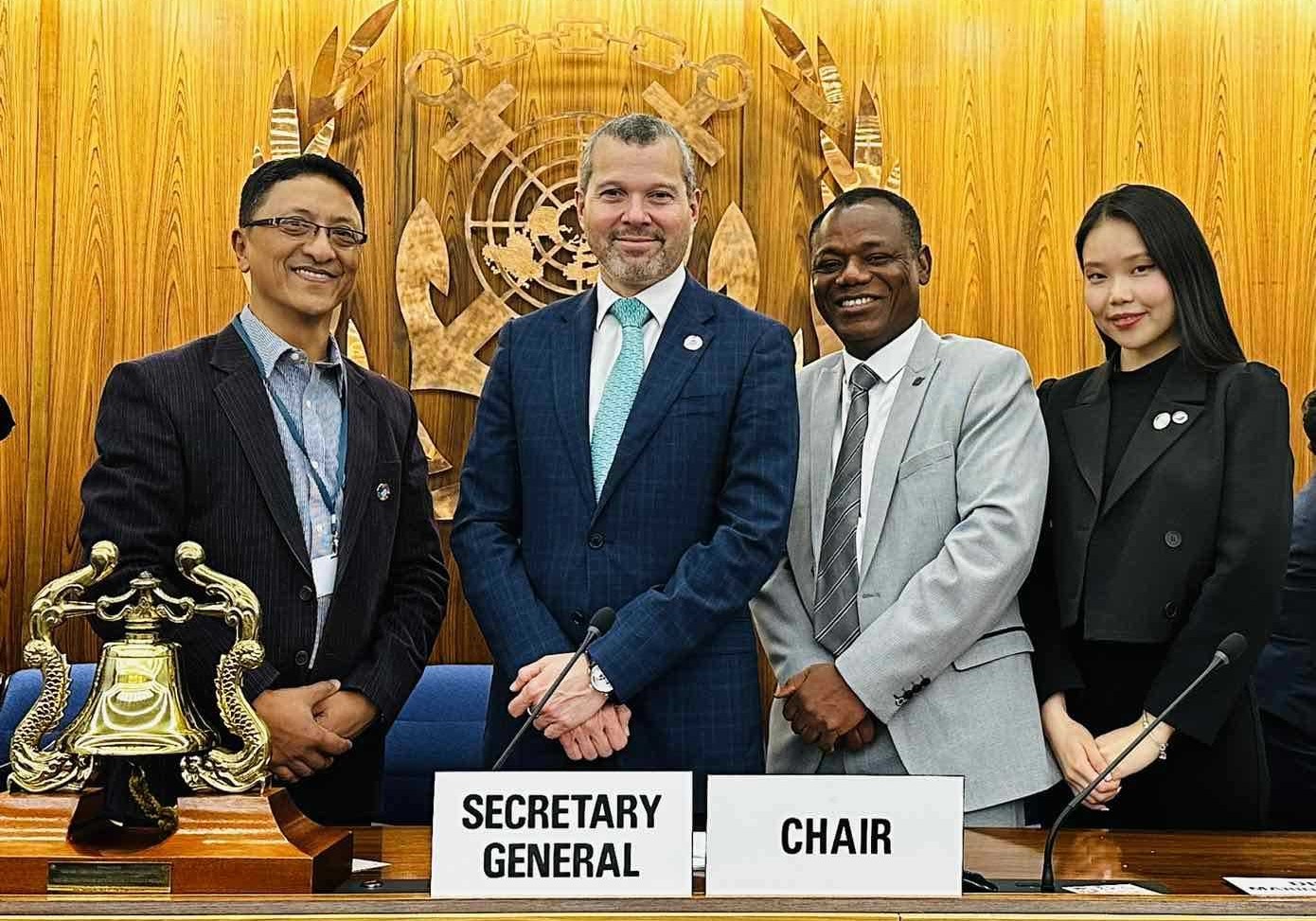


The delegate from Mongolia, Ms. Anujin Onon, a Senior Officer in Charge of Ship Registration and Monitoring Department of Mongolia Maritime Administration, participated in the International Maritime Organization’s (IMO) Marine Environment Protection Committee’s 81st session (MEPC 81) and the sixteenth meeting of the Intersessional Working Group on Reduction of GHG Emissions (ISWG-GHG 16), held from 11 to 22 March 2024 in London, United Kingdom of Great Britain and Northern Ireland. The delegate’s participation in the MEPC 81 and the ISWG-GHG 16 was made possible through the IMO’s Voluntary Multi-Donor Trust Fund (VMDTF). VMDTF provides financial assistance to representatives of developing countries, which are IMO Member States, in attending the meetings of MEPC and ISWG-GHG.
During the ISWG-GHG 16, discussions primarily focused on proposals related to a GHG fuel standard and pricing mechanism for mid-term GHG reduction measures, as outlined in the 2023 IMO GHG Strategy. Delegations expressed commitment to developing a goal-based marine fuel standard and an economic element through a GHG emissions pricing mechanism.
The group noted varying views on integrating technical and economic elements into the fuel standard versus developing a separate GHG pricing mechanism. Further discussions centered on the development of a global fuel standard alongside GHG pricing mechanisms and associated revenue collection strategies.
Regarding the development of a goal-based marine fuel standard, the group committed to further refining the standard to regulate the phased reduction of marine fuel GHG intensity, considering operational approaches and well-to-wake emissions. A comprehensive impact assessment of candidate mid-term GHG reduction measures was also discussed, covering aspects like geographic remoteness, transport costs, and socio-economic impacts.
MEPC 81's agenda was focused on combating climate change through the endorsement of the "IMO net-zero framework" and guidelines for life cycle GHG intensity. The committee also advanced initiatives to enhance ship energy efficiency with the adoption of the 2024 Guidelines on Ship Energy Efficiency Management Plans (SEEMP) and a review of fuel consumption and carbon intensity data. Approval was also given for emission control areas in Canadian Arctic Waters and the Norwegian Sea.
During the MEPC 81, combatting marine litter was addressed through approved amendments on reporting lost containers and recommendations for plastic pellet carriage safety. MEPC 81 adopted amendments to regulations A-1 and B-2 of the International Convention for the Control and Management of Ships' Ballast Water and Sediments concerning the use of electronic record books. The amendments are expected to enter into force on 1 October 2025. Furthermore, discussions on ship recycling focused on implementing the Hong Kong International Convention for the Safe and Environmentally Sound Recycling of Ships for safe practices.
During the meeting, the committee adopted amendments to the Annex VI of the International Convention for the Prevention of Pollution from Ships, emphasizing the shift to marine diesel engines for efficiency and reduced emissions, along with endorsing an action plan for underwater noise reduction.
MEPC 81's decisions mark substantial steps in promoting sustainability and environmental protection within the maritime industry, with diverse participation reflecting global commitment to these critical issues.
20.05.2024 05:22:36
Maritime Administration of the Plurinational State of Bolivia represented by the Bolivian International Ship Registry (Registro…
At the beginning of June our colleagues from the SING-LLOYD European Office have attended one of the world's largest maritime e…
The Maritime exhibition Posidonia 2024 will be held soon. The representatives of the Sing-Lloyd are going to visit it to keep u…